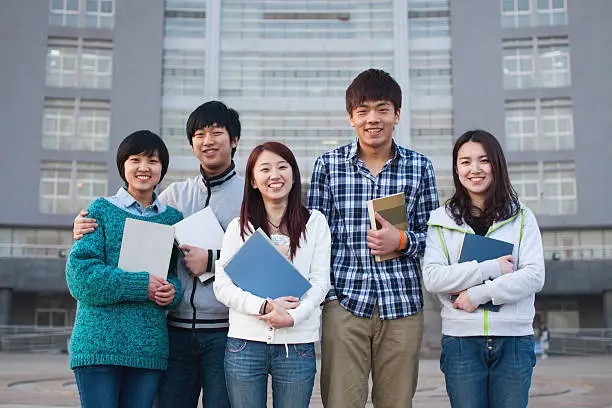
By Newswriters News Desk
Former President Donald Trump’s recent call for 600,000 Chinese students to bolster U.S. universities, paired with a warning against “spies,” captures the fraught balance of U.S.-China relations. As tensions rise and student numbers dwindle, America grapples with a paradox: how to harness global talent while addressing security fears. This analysis explores the economic stakes, academic implications, and geopolitical tightrope of a policy caught between openness and suspicion.
At a recent Florida rally, former President Donald Trump declared that America “needs 600,000 Chinese students” in its universities to stay competitive, while cautioning, “we don’t want spies.” His remarks underscore a persistent tension in U.S.-China relations, pitting the need for global talent against national security concerns. This paradox raises critical questions about academic openness, economic reliance, and the risks of escalating distrust.
Trump’s comments reflect a pragmatic yet contradictory stance. He praised Chinese students for paying “full fees” and bringing “the best minds” to U.S. campuses, acknowledging their economic and intellectual contributions. However, his warning about espionage risks echoes long-standing fears of intellectual property theft and covert influence. This duality reignites debates over how the U.S. can balance attracting international talent with safeguarding its interests amid rising tensions with Beijing.
The backdrop is stark: the number of Chinese students in the U.S. has plummeted from over 370,000 in 2019 to under 280,000 in 2024, according to the Institute of International Education. Stricter visa policies, heightened scrutiny, and the chilling effect of U.S.-China rivalry have driven this decline. American universities, which rely heavily on international tuition, face billions in lost revenue, while their global research edge risks erosion. Trump’s first term saw tightened visa rules for Chinese students in STEM fields, citing espionage concerns. His recent pivot suggests a recognition of the economic and academic costs of such restrictions.
The U.S. dilemma is clear: Chinese students are vital to maintaining its academic and innovative leadership, yet strategic competition with China fuels suspicion. The FBI has flagged Beijing’s “talent recruitment” programs as potential conduits for technology transfer, though evidence of widespread espionage by students remains limited. Universities counter that most Chinese scholars are legitimate contributors to fields like science, medicine, and technology, and blanket restrictions harm both academia and U.S. soft power.
Trump’s rhetoric appears tailored to his 2025 campaign, appealing to hardline voters wary of China while addressing business and academic concerns about declining enrollment. “He’s walking a tightrope—keeping voters alarmed about China while signaling openness to its talent,” said Dr. Michael Green, a Georgetown University policy expert. This balancing act highlights a broader challenge: how to engage with China without compromising security or alienating a key demographic that bolsters U.S. institutions.
Beijing’s response was restrained, with the Chinese Foreign Ministry urging that “education exchanges should not be politicized.” On Chinese social media, reactions varied—some users praised Trump’s candor, others criticized the U.S. for wanting China’s talent while questioning its motives. These sentiments reflect a growing wariness in China about studying in an increasingly skeptical U.S.
The issue cuts to the heart of America’s identity as an open, innovative society. Universities depend on international students not just for funding but for diverse perspectives that drive breakthroughs. Yet in an era of geopolitical rivalry, even education is a flashpoint. Overly restrictive policies could cede America’s academic advantage to competitors, while unchecked openness risks vulnerabilities. Trump’s call for 600,000 Chinese students—a figure far exceeding current numbers—seems aspirational but vague, lacking a clear plan to reconcile security with opportunity.
Ultimately, Trump’s remarks encapsulate the U.S.-China relationship: a mix of interdependence and mistrust. Cooperation in education remains essential, yet suspicion lingers. Policymakers must navigate this paradox carefully, ensuring that the pursuit of security does not undermine the very strengths—openness, innovation, and global collaboration—that make America’s universities world-class.
Photo: Unsplash



